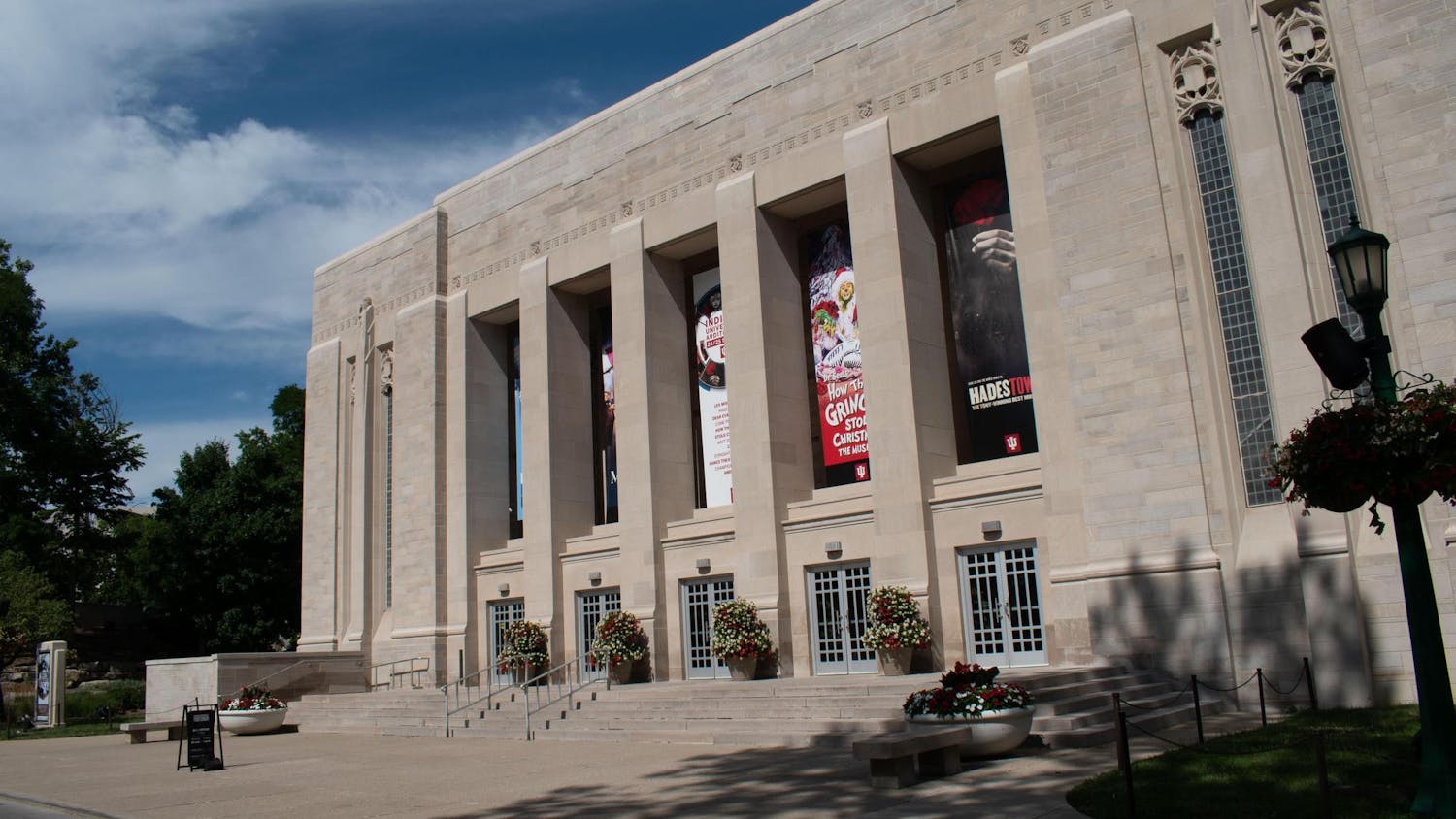Theater at IU tends to be high quality in production, but it usually remains an untapped source by students on campus. The work is an avenue for education and entertainment, but the theater also provides its practitioners -- here, fellow students -- with the opportunity to voice important (or not so important) issues.\nThis year in particular, IU Theatre has chosen a season that will both entertain and educate. The question is, what do these shows have to say to the here and now?\nFor the Department of Theatre & Drama, the season marks the end of the University Theatre and T300 Studio Theatre, as they will soon move into the Neal-Marshall Center on 7th Street and Jordan Avenue. The building will house the new large Ruth N. Halls proscenium theater and the Wells-Metz experimental, flexible theater space. In saying goodbye to the old buildings and hello to the new, the theater department made some very engaging choices as to how those buildings will close and open.\nThe University Theatre will show "Noises Off" by Michael Frayn in early October and will drop its final curtain on Samuel Beckett's masterpiece "Waiting for Godot." T300, usually known for its more mature and experimental play choices, will open with Steven Deitz's "Gods Country" and will close with the MFA Thesis play of Angeline Larimer, "The Fish in the Desert."\nThe juxtaposition of "Noises Off" and "Godot" is a unique choice -- the former is arguably the best farcical comedy of the modern day and the latter, while a comedy of another kind, is one of this century's most poignant plays.\n"Noises Off" explores that which all of us in the theater know well -- the comedy and drudgery of what happens off stage. Opening with "Noises Off" celebrates the practice of making theater by glorifying those rituals, which we hold most dear. Though those of us who have been part of the rehearsal process know how taxing it is, we also know what a joy creativity can be. "Noises Off" also presents audiences with a front-row seat to the hilarity of the comedy that only happens in rehearsals, which we never see unless the DVD happens to include outtakes. It is saying goodbye by remembering the happiness of the past.\n"Godot" concerns two men waiting in a nowhere spot in an unspecified time for a man named Godot who never arrives (and hence, they never leave). Having the play close the doors to the University Theatre is a fascinating choice. \n"Godot" raises poignant questions about companionship, friendship and our own expectations of the future in an absurdity of Seinfeldian quality. After years of construction and waiting for what essentially was our own Godot, how appropriate it is to have this play produced at the end of a long wait, peppered with expectations of the new building.\nThe new Theatre and Drama Center opens its doors with, arguably, the 20th century's greatest American play, "Death of a Salesman" by Arthur Miller. The Pulitzer Prize-winning masterwork about the tragedy of mediocrity is both a scorcher for the stage and juicy meat for actors. The play is a requiem for the loss of the American dream, pipe dreams once coveted, now gone.\nFor many students and professors in the theater department, a new theater and drama center was also a pipe dream. How interesting is it that a play about the death of the American dream will initiate new life in a theater that, for a long time, was just wishful thinking?\nPerhaps the boldest show of the season is the musical "Parade," by Jason Robert Brown and Alfred Uhry. Only playing 84 performances at the Vivian Beaumont Theatre at Lincoln Center, the musical is based on the true story of Leo Frank, a New York Jew living in the South who was falsely accused of raping and murdering a young girl. The music is by a relatively unknown composer that is, in many ways, redefining the genre of the Broadway score. The book was written by acclaimed playwright Alfred Uhry, best known for his "Driving Miss Daisy." \nCertainly that show will challenge audiences and actors in a way that is not often accomplished in the musical theatre genre, and certainly rarely seen at IU. Challenging the audience is something that perhaps the theater department has also chosen to do with its T300 choices.\nThe first of the final two T300 productions is Steven Dietz's play "Gods Country," a virtual interrogation and theatrical investigation into the ways of white supremacy and racism in the northwestern United States. The play reads like an infectious trial transcript, and skillfully moves between places and people, ultimately provoking one to question how propagandized our culture has become. The piece is moving and brilliant and only 500-some people will get to see it, mostly subscribers, family, and theater students.\nSimilarly, though I've not had the opportunity to read it, "The Fish in the Desert" is a brand-new play that will premier in November. How exciting it always is to see new work being created before our very eyes.\nT300 is the place where the department allows itself to push the envelope (relative to its audience), but it is always on such a small scale. Perhaps the newer and larger Wells-Metz flexible theatre will still remain the boat rocker. One can only hope.\nBut looking at the Wells-Metz's 2002 season, there seems to be a shift of style in the play choices from T300. Rather than new plays, we are getting a classical comedy from Shakespeare, "Much Ado About Nothing," and an updated version of Moliere's comedy "Scapino." Both plays are hilarious and both come from a rich and under-tapped theatrical tradition -- classical theatre. But what boat are we rocking?\nIs it a sign to come that now with an addition of some 200 seats (over T300s 66) that we now have to be cautious as to what we bring to our audience? Or, does this just mean that in order to test the water, we're seeing plays that will benefit most from the flexibility of the new stage?\nNevertheless, theater will be created, education will occur, entertained we shall be, and perhaps something will "give us pause." IU theater contains a very strong talent pool, ranging from actors to stage managers -- all budding students ready to make their mark in the world.\nGo see a show.
Theater season marks transitive year ahead
Get stories like this in your inbox
Subscribe





